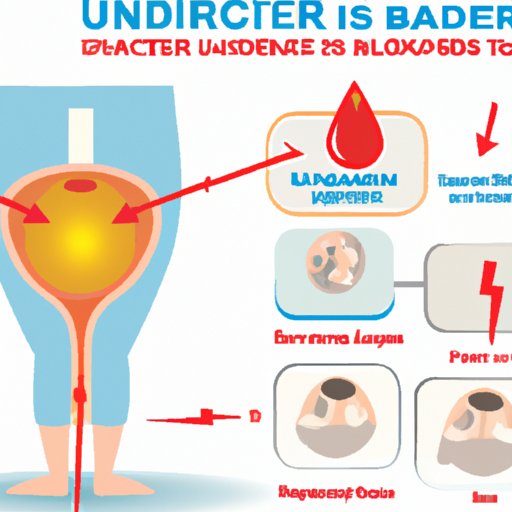
Understanding the Symptoms of a Bladder Infection: What You Need to Know
A bladder infection, also known as cystitis, is a common infection that affects millions of people every year. It is caused by bacteria that enter the bladder through the urethra. While both men and women can develop bladder infections, women are more prone to this condition due to the shorter length of their urethra. If you suspect that you may have a bladder infection, it’s important to recognize the symptoms and seek prompt medical attention to avoid complications.
Recognizing the Signs: Top Symptoms of a Bladder Infection
The most common symptoms of a bladder infection are a pain or a burning sensation while urinating, a strong and frequent urge to urinate, passing only small amounts of urine, cloudy or strong-smelling urine, and discomfort or pressure in the lower abdomen or back. These symptoms appear because the bacteria cause inflammation in the bladder, leading to a urinary tract infection (UTI). It’s important to note that not everyone with bladder infections will have all of these symptoms, and some people may have additional symptoms as well.
Don’t Ignore the Warning Signs: Signs and Symptoms of a Bladder Infection
Unfortunately, some people may ignore the symptoms of a bladder infection, thinking that they will just go away on their own. But if left untreated, bladder infections can lead to more serious complications, such as kidney infections, especially in people who have diabetes, are pregnant, or have a weakened immune system. Additional signs to look out for include fever, chills, or vomiting. If you experience any of these symptoms, it’s important to seek medical attention right away.
From Burning Sensation to Frequent Urination: Common Symptoms of a Bladder Infection
A burning sensation while urinating is one of the most common symptoms of a bladder infection. This is caused by irritation and inflammation in the lining of the bladder. Another common symptom is a strong and frequent urge to urinate, but only small amounts of urine are passed each time. You may also notice that your urine is cloudy or has a strong smell. In some cases, you may experience discomfort or pressure in your lower abdomen or back. It’s important to note that these symptoms can vary in intensity and duration depending on the severity of the infection.
When to See a Doctor: Signs and Symptoms of a Bladder Infection You Should Know
If you experience any of the above symptoms, it’s important to see a doctor, especially if the symptoms are severe or last for an extended period of time. You should also seek medical attention if you notice blood in your urine. Complications of an untreated bladder infection can include the spread of the infection to other organs, leading to more serious conditions such as sepsis. Treatment typically involves antibiotics to clear the infection, but in severe cases you may need to be hospitalized.
A Comprehensive Guide to Symptoms of a Bladder Infection: What to Look Out For
A bladder infection can be uncomfortable and may interrupt your daily life. To help manage your symptoms, try drinking plenty of water, emptying your bladder often, and taking over-the-counter pain medications as directed. Cranberries have also been shown to be effective in preventing urinary tract infections. However, if you develop a fever, feel very ill, or your symptoms worsen, contact your doctor immediately.
The Uncomfortable Truth: Understanding the Symptoms of a Bladder Infection
Bladder infections can happen to anyone, but there are steps you can take to prevent them. Drinking plenty of water and urinating frequently can help flush out bacteria that might cause an infection. Avoid using feminine products, like sprays or powders, which can irritate the urethra. Make sure to wipe from front to back after going to the bathroom, and urinate after sex to help flush out bacteria that may have entered the urinary tract. And if you do experience symptoms of a bladder infection, don’t hesitate to contact your healthcare provider.
Conclusion
A bladder infection can be a painful and uncomfortable experience. Recognizing the symptoms and knowing when to seek medical attention is important in order to prevent complications. If you experience any of the signs or symptoms mentioned in this article, schedule an appointment with your healthcare provider to receive a diagnosis and treatment plan.
